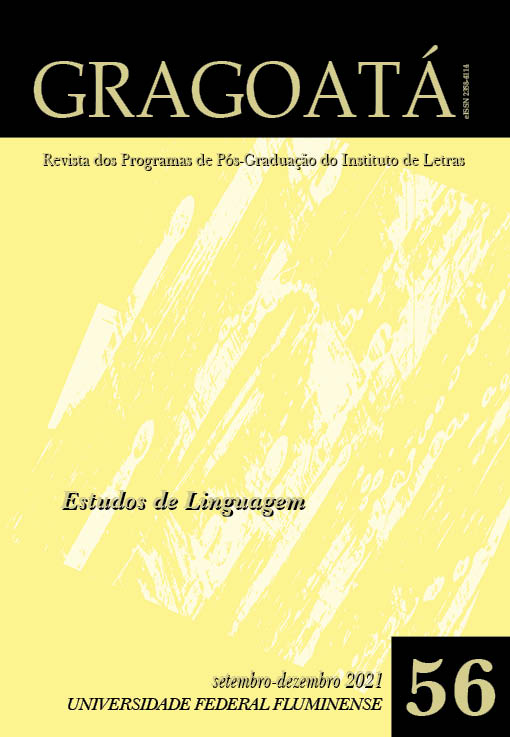Building a decolonial curriculum with the voices from the south: english as a language of denouncing against human rights violations
DOI:
https://doi.org/10.22409/gragoata.v26i56.49087Keywords:
Currículo decolonial , Defensores/as de direitos humanos, Inglês como língua de denúncia, Vozes do SulAbstract
Despite being inherent to the process of hegemonic globalization, English can be configured as a language of denunciation and interaction between human rights defenders in the global South. Bearing this in mind and based on the intercultural dialogue with these voices from the South (SANTOS, 2010), we put forward a decolonial English language teaching curriculum aimed to cater for the needs and demands of these defenders. We made use of unidentified questionnaires for the national and international contexts, whose 159 answers enabled a deeper understanding of defenders’ identities, belongings, activisms and linguistic engagements. First, we adopted a listening posture guided by Boaventura de Sousa Santos’s intercultural imperatives (2010; 1997). And, in the course of this dialogical process, we propose a curriculum comprised of sections gathering themes, literacies, form-functions and genres that favor defenders to project their agendas of activism and resistance in the international arena. Thus, mastering the English language in this context can minimize death threats toward defenders by making their actions more visible and notorious.
Downloads
Downloads
Published
How to Cite
Issue
Section
License
Authors who publish in Gragoatá agree to the following terms:
The authors retain the rights and give the journal the right to the first publication, simultaneously subject to a Creative Commons license CC-BY-NC 4.0, which allows sharing by third parties with due mention to the author and the first publication by Gragoatá.
Authors may enter into additional and separate contractual arrangements for the non-exclusive distribution of the published version of the work (for example, posting it in an institutional repository or publishing it in a book), with recognition of its initial publication in Gragoatá.

Gragoatá is licensed under a Creative Commons - Attribution-NonCommercial 4.0 International.














